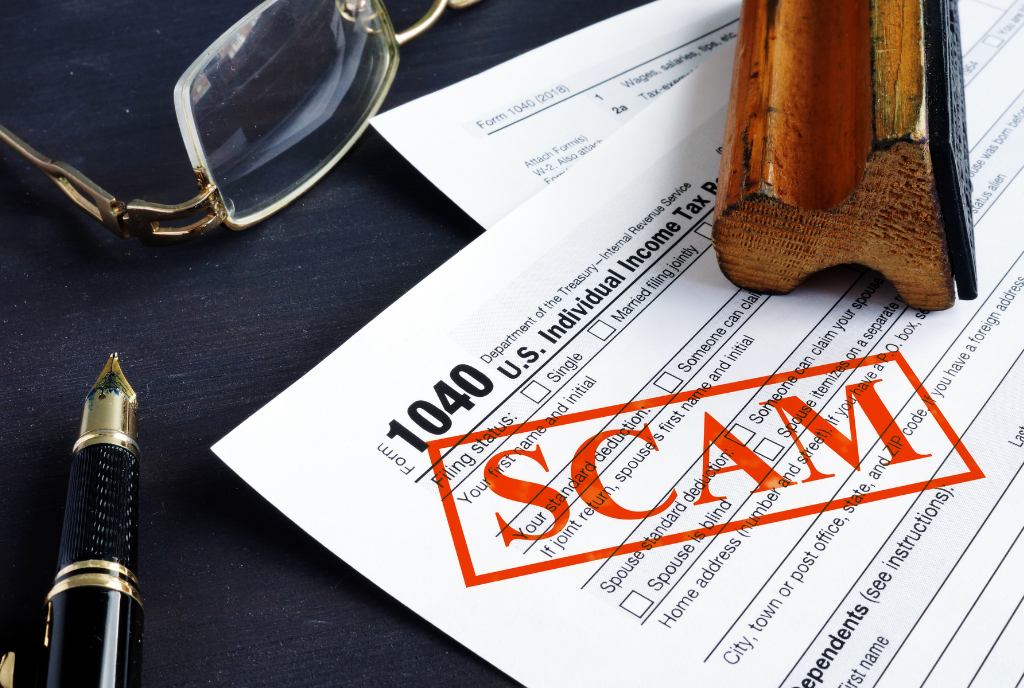All Resources
Common IRS Tax Scams & How to Protect Yourself

- Con artists make unsolicited calls claiming to be IRS officials. They demand that the victim pay a bogus tax bill. They convince the victim to send cash, usually through a wire transfer or a prepaid debit card or a gift card. They may also leave “urgent” callback requests through phone “robo-calls,” or send a phishing email.
- Many phone scams use threats to intimidate and bully a victim into paying. They may even threaten to arrest, deport or revoke the driver’s license of their victim if they don’t get the money.
- Scammers often alter caller ID numbers to make it look like the IRS or another agency is calling. The callers use IRS employee titles and fake badge numbers to appear legitimate. They may use the victim’s name, address, and other personal information to make the call sound official.
- Aggressive and threatening phone calls by criminals impersonating IRS agents remain a major threat to taxpayers, but variations of the IRS impersonation scam continue year-round and they tend to peak when scammers find prime opportunities to strike.
- Private collectors for the IRS cannot accept direct payments - all payments should be made to the U.S. Treasury. The agency will not require specific types of payments such as wire transfers or prepaid debit cards. Scammers prefer these methods because they are hard to trace and can be redeemed anywhere in the world.
- Unless the IRS has an incorrect address, both the agency and its private collectors should first make contact by mailed letter.
- Those who owe tax debt but cannot pay in full will be offered an installment plan for up to five years.
- The same rules for other collectors apply. No calls before 8 a.m. or after 9 p.m. You must be sent a written "validation notice" telling you how much money you owe within five days after first contact. No harassing, abusive, or threatening language is allowed.
- Certain tax bills (and therefore phone calls) cannot be handled by private collectors for the IRS: those for taxpayers who are deceased, under age 18, in a designated combat zone, or a victim of identity theft. Debtors currently in audit, litigation, or criminal investigation are also off-limits to third-party hired guns.
To learn about more about IRS Impersonation Scams, read the full article here.
SUGGESTED ARTICLES
All content is for informational purposes only and does not constitute legal, tax, or accounting advice. You should consult your legal and tax or accounting advisors before making any financial decisions.